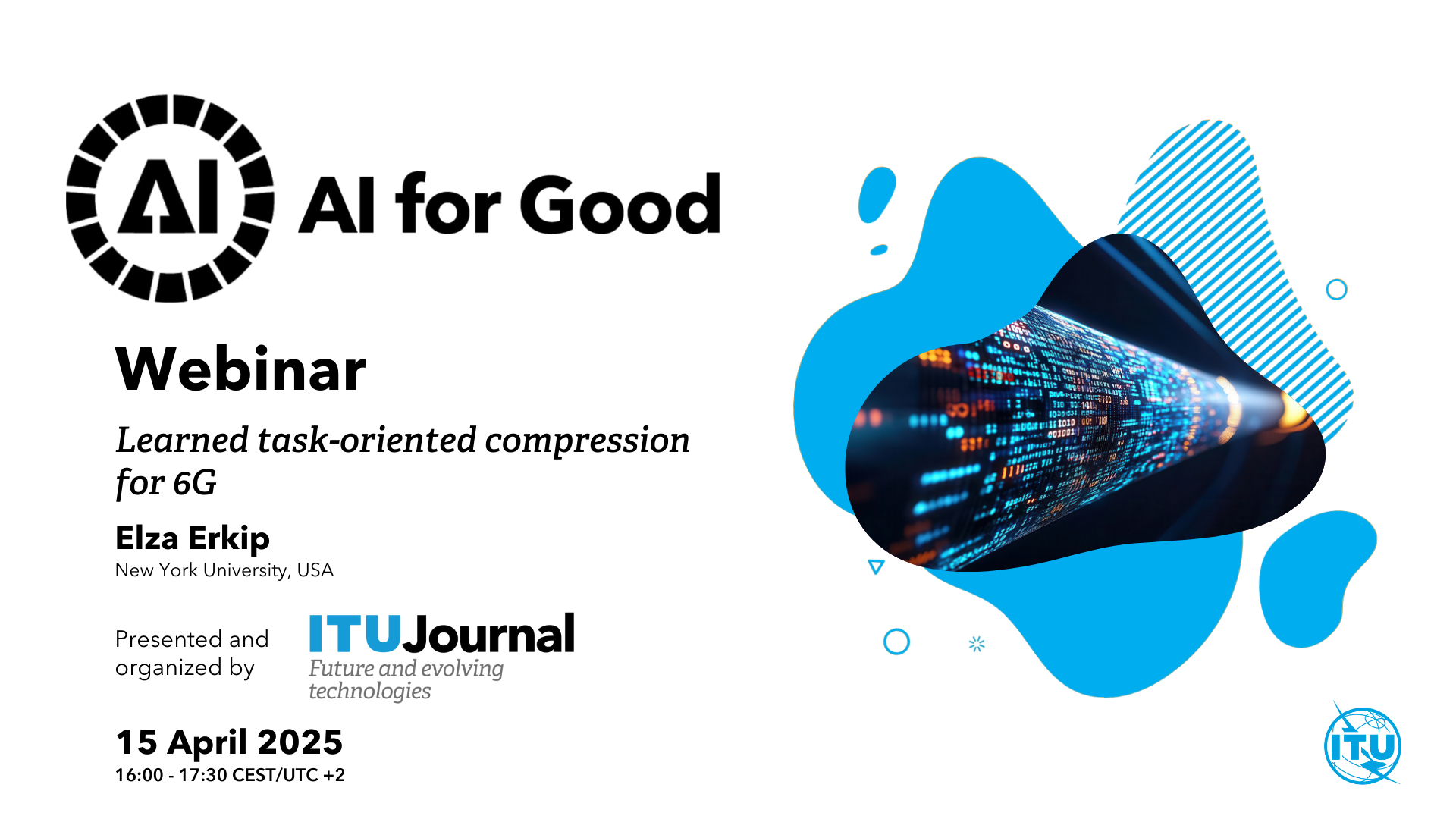
TALK
Traditionally, the goal of compression is to represent a complex information source such as an image in the most compact way while ensuring an acceptable level of signal distortion. The goal of communication, on the other hand, is to reliably transmit the compressed information over a noisy channel. This talk explored how in-network compression can be used for faster and more reliable communication in 6G networks. This is achieved by task-oriented compression, where instead of minimizing the signal distortion, the goal is to optimize a task described by the wireless network operation. By leveraging recent advances in learning-based data compression, this talk illustrated the potential benefits of learned task-oriented compression for two use cases in 6G.
The first one is a precoding-oriented Channel State Information (CSI) feedback scheme for multi-cell multi-user MIMO systems, where the learned end-to-end architecture integrates the downlink channel estimation, the CSI compression, and the downlink precoder for higher rates and more effective inference management. The second case is a simple multi-hop network in which a neural detection-oriented relay learns to Compress-and-Forward (CF) its received signal for higher reliability and data rate at the destination. Using a novel machine-learning based distributed compression framework, the first proof-of-concept design for an interpretable and practical neural CF relaying scheme
is obtained.
WISDOM CORNER: LIVE LIFE LESSONS
Participants had the chance to hear from Prof. Erkip about her impactful life lessons over the years as well as her advice to young researchers in the field of information and communication technologies.
WATCH RECORDING

|
SPEAKER:
Elza Erkip, New York University, USA
Elza Erkip is an Institute Professor in the Electrical and Computer Engineering Department at New York University Tandon School of Engineering. She received the B.S. degree in Electrical and Electronics Engineering from Middle East Technical University, Ankara, Turkey, and the M.S. and Ph.D. degrees in Electrical Engineering from Stanford University, Stanford, CA, USA. Her research interests are in information theory, communication theory, and wireless communications.
Dr Erkip is a member of the Science Academy of Turkey and is a Fellow of the IEEE. She received the NSF CAREER award in 2001, the IEEE Communications Society WICE Outstanding Achievement Award in 2016, the IEEE Communications Society Communication Theory Technical Committee (CTTC) Technical Achievement Award in 2018, and the IEEE Communications Society Edwin Howard Armstrong Achievement Award in 2021. She was the Padovani Lecturer of the IEEE Information Theory Society in 2022. Her paper awards include the IEEE Communications Society Stephen O. Rice Paper Prize in 2004, the IEEE Communications Society Award for Advances in Communication in 2013 and the IEEE Communications Society Best Tutorial Paper Award in 2019. She was a member of the Board of Governors of the IEEE Information Theory Society 2012-2020, where she was the President in 2018. She was a Distinguished Lecturer of the IEEE Information Theory Society from 2013 to 2014. She is currently the Editor-in-Chief of IEEE Journal on Selected Areas in Information Theory and the Chair of IEEE Communications Society Communication Theory Technical Committee.
|

|
MODERATOR: Ian F. Akyildiz, ITU J-FET Editor-in-Chief and Truva Inc., USA
|
